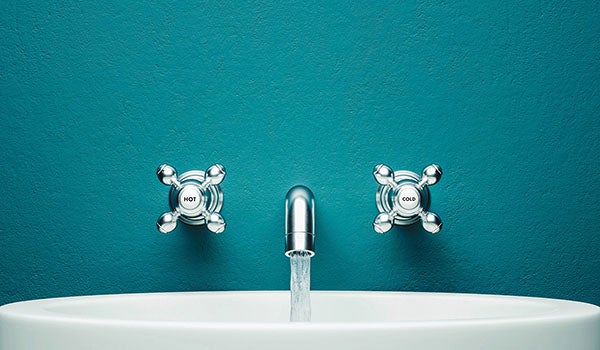Niles water superintendent talks winter water concerns
Published 10:46 am Wednesday, January 6, 2021
|
Getting your Trinity Audio player ready...
|
NILES – Temporary water outages occurred in December for some Niles residents. Most take hours to address, but it can be an unwelcome surprise when an issue arises.
With southwest Michigan’s winter weather in full swing, City of Niles Water Department Superintendent Leanne Caddy said scheduled maintenance slows and until the spring and summer, the water department braces for water main breaks.
“This is heavy main break season,” Caddy said. “Those come at all times of the day and night. We can’t foresee those coming.”
The impacts of emergency water maintenance, temperature change and weather can all shift how people perceive their water and water use through the colder months.
Water main breaks happen more in the winter, due to the cold temperatures driving the frost further into the ground, Caddy said. The ground then shifts as the temperature changes. As the ground shifts, an iron watermain does not – and that is when a break can occur.
The shift in temperature, and increased use of hot water, can also change what residents notice about their own water.
“The heat affects things. The cold weather affects things,” Caddy said. “It depends on the day you sample something. We stay on top of it all the time.”
When residents recently voiced concern about a chlorine smell to their water, Caddy said there had not been any major maintenance or shift in the numbers for the water.
“Ninety-nine percent of the time that is from a water heater,” Caddy said. “If you turn on the hot water and smell it, but turn on cold water and do not, the issue is in the hot water heater.”
Caddy said the department regularly checks in on customers.
“We try to put everybody’s mind at ease,” she said. “We try to make everybody happy.”
According to Caddy, the city’s water is monitored and maintained every day to ensure its quality for residents. The city department adheres to state regulations and reporting protocols.
“The state is very strict,” Caddy said. “When you add chemicals to water, it has to be maintained. We have several failsafe type systems hooked into it.”
One of those systems is called supervisory control and data acquisition system, or SCADA.
“That alarms us if there is any kind of trouble,” Caddy said.
All of the daily tests have fallen within a normal, acceptable range for things in the water supply that are monitored by the city and state, according to Caddy.
Earlier in 2020, a letter went out to water customers in the city about a test monitoring volatile organic chemicals that was not fulfilled by the city of Niles. The letter explained there was no threat to the quality of water at the time. The sample had been taken in mid-March, and by the time it was tested by the lab the method pH requirements were not acceptable for the test. The quarterly test had to be resampled on April 9.
“It’s good to do the test at the beginning of the quarter, where they can get a hold of you to let you know [if something is wrong],” Caddy said. “It can be as simple as the lab broke the bottle.”
The 2019 annual water quality report is posted on the water department’s page of the Niles city website. The 2020 report will be submitted by July 1.







